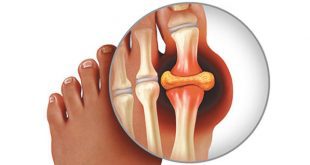As the New Year begins, many of us will begin yet another round of healthy resolutions. Some of us will vow to exercise more, eat healthier and lose weight. As with most resolutions, the idea of getting healthier is stronger than our actual resolve to put in the required effort to achieve our goals. For many years, people have used heredity as an explanation for everything from obesity to cancer. While there certainly are genetic predispositions towards certain diseases, everyone has the potential and ability to change their lifestyle and habits in order to lead a longer, healthier life.
Quit Smoking or Chewing Tobacco
The Mayo Clinic suggests that by making minor life changes, such as eating better, exercising and maintaining a healthy weight, we can help to control our risk of cancer. The Mayo Clinic suggests that the first step toward health and wellness is to quit smoking or using chewing tobacco. Cigarette and cigar smoking have been tied to lung, bladder, cervix and kidney cancer; chewing tobacco has been tied to oral and pancreatic cancer (Mayo Clinic, 2011). Smoking is not an easy habit to break, but fortunately there are products available today that greatly increase the chance of quitting successfully.
A Healthy Diet and Regular Exercise
The importance of a healthy diet and regular exercise cannot be overstated. A diet high in fruits, vegetables and natural grains, and low in fat, especially saturated fat, aides in maintaining a healthy weight. Exercise is another area that can be overwhelming. Fortunately, an hour a day is not necessary; healthy changes can be as easy as parking further away from the store or incorporating a daily walk into your day. “Maintaining a healthy weight may lower the risk of various types of cancer, including cancer of the breast, prostate, lung, colon and kidney. Physical activity has also been shown to decrease the incidence of breast and colon cancer.” (Mayo Clinic, 2011) These changes can easily be incorporated into your lifestyle and may prevent not only cancer but also high blood pressure and other physical ailments.
Sun Protection is Key
The next recommendation is especially important to those of us living in Florida. Sun protection is the best way to prevent skin cancer. Since avoiding the sun completely is not realistic, there are simple things that can be done to help to prevent skin cancer. It is important to stay out of the sun during peak hours, wear sunscreen and avoid using tanning beds or spending protracted time in the sun. Melanoma is the most serious type of skin cancer and is believed to be caused by over-exposure to the sun and the use of tanning beds. It is important to be aware of any changes to your skin as well as changes to moles and other skin growths. It is not only important to complete self-examinations, it is recommended to consult a dermatologist for a yearly skin screening. Skin cancer is more common in those living in southern climates, those who are fair skinned and those who have a familial history of the disease. However, once again lifestyle changes can also reduce the risk of acquiring skin cancer. If cancer has been diagnosed, it is important to receive early treatment and to follow up with regular appointments and health care screenings. In 2009, The National Oncology PET Registry (NOPR) approved full-body PET scans for the evaluation of recurring skin cancer.
Mammograms Can Save Lives
Recently, there has been some discussion on whether or not a yearly mammogram is necessary every year beginning at the age of 40. The American College of Radiology (ACR) and the Society of Breast Imaging support the updated American College of Obstetricians and Gynecologists recommendations which now correspond with those of the American Cancer Society (Medimaging.net, 2011). Research shows that mammograms save lives; one long term study indicates that mammography screening decreased the death rate from breast cancer by 30%. Recently, there has been some argument that mammograms can safely be decreased to every other year instead of the current yearly recommendation. Considering that 75% of women who develop breast cancer do not fall into the high-risk category, screening only those who qualify as high risk would certainly set back the fight against breast cancer. Currently, it is recommended that every woman over 40 have a mammogram and those who fit the high risk criteria have a mammogram starting at the age of 30 or 35. While a mammogram is not flawless or painless, it is certainly an important diagnostic tool in the early detection of breast cancer in both women and men. Yes, men too can develop breast cancer and should be aware that any changes to the breast region should be looked at by a physician and may require further diagnostic testing.
Importance of Yearly Physicals and Diagnostic Screenings
Fortunately, there are things that can be done to improve health and increase the quality of life as we grow older. In addition to maintaining healthy eating habits, exercising regularly, not smoking, and drinking conservatively, it is also important to have yearly physicals and diagnostic screenings. Fortunately, imaging is readily available and affordable. Advanced Imaging works with area physicians to ensure that everyone has access to the highest technology and best radiological services available. Whether you need a mammogram, MRI, CAT scan or some other type of diagnostic testing, Dr. Fabian and Advanced Imaging’s staff are available to make scheduling, testing and treatment as easy as possible.
Your Health Is Important to Us
Make yourself and your health a priority this New Year. For information on the state-of-the-art medical exams and other diagnostic tests Advanced Imaging conducts, please call 941-235-4646, visit us at www.advimaging.com or stop by to view the facility.
References:
http://www.cancerpetregistry.org/pdf/nopr_opsman.pdf
http://www.medimaging.net/radiography/articles/294736485/updated_recommendations_support_yearly_mammograms_beginning_at_40.html
http://MayoClinc.com
 Southwest Florida's Health and Wellness Magazine Health and Wellness Articles
Southwest Florida's Health and Wellness Magazine Health and Wellness Articles

